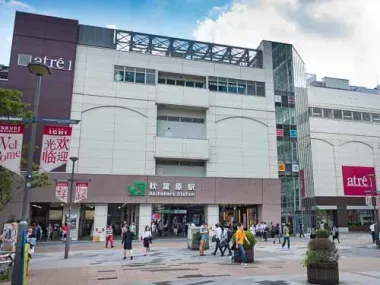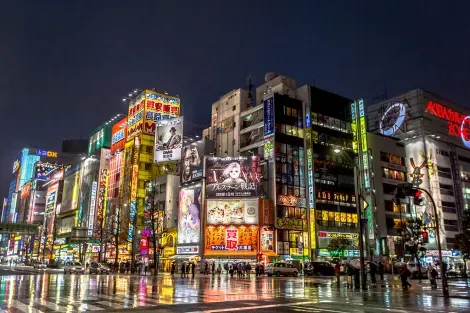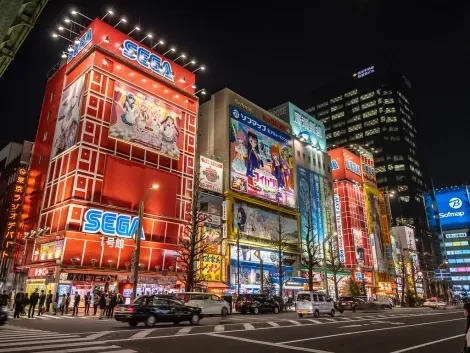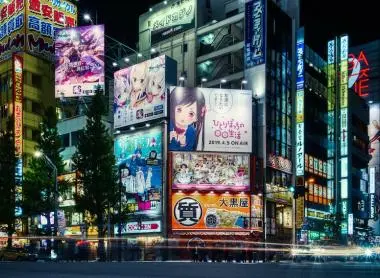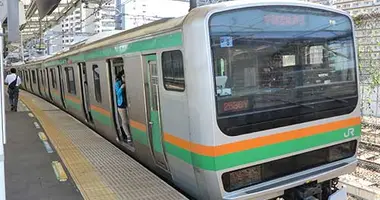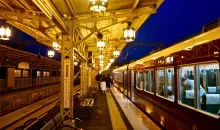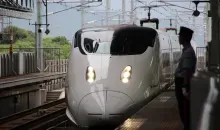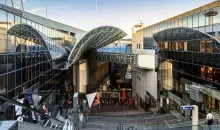Akihabara Station 秋葉原駅

Akihabara, Taito-ku
Akihabara Station: read a guide to Akihabara Station which connects to the Tsukuba Express, Yamanote Line and Chuo-Sobu Line.
Akihabara Station was first opened in 1890 for freight traffic and began to serve passengers in 1925.
Akihabara connects with the JR Yamanote Line, the Chuo-Sobu Line, the Keihin-Tohoku Line, the Tsukuba Express line, and the Tokyo Metro Hibiya subway line.
In the basement, the station is the terminus of the Tsukuba Express line that links Tokyo to Chiba, Saitama and Ibaraki prefectures.serving as an easily accessible station within Tokyo from the surrounding prefectures.
The subway ( Hibiya line, exit 3) is just outside the station with Showa_Dori Exit. To reach the "electric city" follow the signs "Akihabara Electric Town Exit" and turn left.
Buses From Akihabara Station
There are buses from Akihabara Station to Haneda International Airport. Journey time is 30 minutes to Terminal 2 and 35 minutes to Terminal 1. Keisei buses from Akihabara Station also run to Tokyo DisneySea and Tokyo Disneyland via Tokyo Station. The journey time is 35 minutes. The Akiba Shuttle bus departs from the Central (Chuo) exit of Akihabara Station to Asakusa (in front of Kaminarimon Gate) and Tokyo Sky Tree with the first bus at 9.05 am and the last bus at 8:10 pm, about every 30 to 50 minutes; 210 yen for adults, or 206 yen with an IC card.
Long distance Highway Buses run from Akihabara to Osaka, Kyoto and Kyotanabe in the Kansai region, Fujioka, Maebashi and Takasaki in Gunma Prefecture, Toyama, Kanazawa, Tsuruoka and Sakata in Yamagata Prefecture as well as Tono, Kamaishi and Otsuchi in Iwate Prefecture.
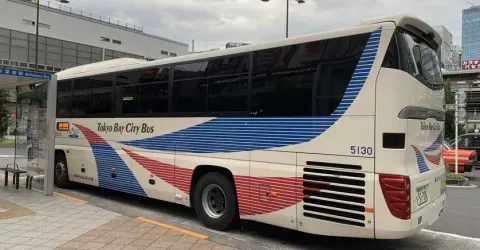
Bus to Tokyo Disneyland, from Akihabara Station
@Japan Visitor
Akihabara is a major commercial and shopping area in Tokyo and has become famous for its countless cut-price consumer electronic and gadget stores, its more recent trend of maid cafes and its numerous stores selling computer games, and geek culture (otaku) goods.
